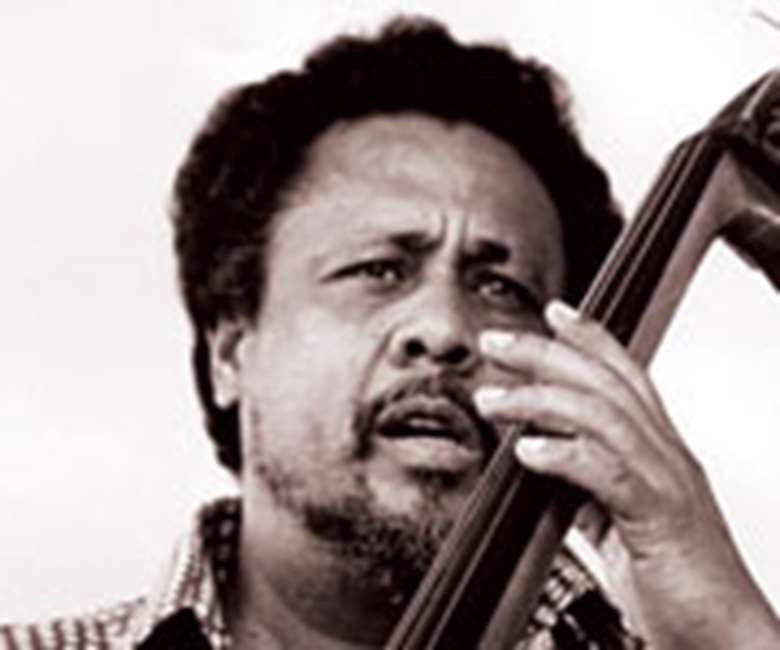Charles Mingus - Triumph of the Underdog
Tuesday, April 17, 2007
Charles Mingus, had he lived, would have been 85 this year. Despite the fact that he is no longer around, his music has an uncanny longevity and his music is more influential today than it has ever been. In a special feature, Jazzwise this month looks at the life and music of Charles Mingus as the repertory band named after him, the Mingus Big Band, prepares to come to the UK for a major tour and a raft of reissues are released.

Mingus biographer Brian Priestley sets Mingus in the context of his times and explains the revolutionary impact Mingus’ innovations had on the jazz of his day, while Keith Shadwick talks to Sue Mingus about her work in perpetuating the music of her husband.
“His recordings are always surfacing under commercials, films, TV shows, and being sampled in hip-hop and rap records. High school marching bands are marching furiously up and down football fields playing ‘Children’s Hour Of Dream’ from Epitaph.” The words of arranger Sy Johnson in Todd Jenkins’s 2006 book I Know What I Know, graphically describing two aspects of Mingus’ legacy – the recorded and the live. While giving credit to Sue Mingus for encouraging the live performances (see interview), Johnson also pays tribute to the strength of the music itself: “Mingus still appeals to the rebels, to the energy and passions of young musicians.”
Frequent are the mentions, in Jazzwise and elsewhere, of players citing Mingus as an inspiration, or reviewers noting his influence on someone else’s work. It’s certainly not only to rebels that Mingus appeals, though that’s undoubtedly a factor in his personality, which we’ll come to later. Energy and passion are just an aspect of the reason why people are drawn to Mingus. Hearing his music is also uplifting because the music is demanding – for listeners and performers alike – and so, when it comes out right, it’s uplifting and fulfilling. But there’s also the attraction that no single way of playing his pieces is the “right” one, since he himself frequently reworked his own themes, and numerous versions of related material resulted.
This is easily confirmed by people already hooked on Mingus, who tend to view “Mingus music” as a separate world unto itself – and it’s true there’s a whole world there to get lost in. But, of course, there are parallels between Mingus and other musicians, specifically the ones who have tried to solve the problem of how to be a “jazz composer”. Not just someone who writes a head and sits back to claim royalties, without doing anything noteworthy to stimulate the contributions of the actual performers. Though such writers often get referred to as composers, perhaps “songwriter” is a more apt description. The kind of composer that Mingus triumphantly was, relatively few others aspire to be – to be – and, of those that aspire, few succeed.
In Mingus’ generation, perhaps only George Russell and Sun Ra can also be said to have attempted compositional methods sufficiently open that the musicians involved are virtually forced to engage their own creativity, rather than just filling an allotted space. When the Mingus approach comes off, the results are not only thrilling but they reflect the players’ personalities, just as much as the composer’s personality. Mingus was quite explicit about this being a desirable outcome – when he was assembling his first distinctive band, sideman Jackie McLean was still young enough to be copying Parker licks. But he recalled Mingus telling him, “I don’t want Charlie Parker, I want Jackie”.
In one way, that isn’t far removed from the achievement of open minded bandleaders not known for their writing, such as the early Count Basie, or even Miles through most of his career – with the difference that Mingus’ written input is highly distinctive. In this, his great inspiration was Duke Ellington, the great patriarch of the Basie generation who showed the world how to give individualistic sidemen their heads yet made the collective results sound “typically” Ellingtonian. Even today, some people still express surprise that the kind of super-precise ensemble work developed in the swing era – and beloved by fans of big-band sounds – was sometimes lacking in Duke’s band. But he valued his players’ personalities more than card-punching precision, and the lesson was not lost on Mingus.
This feature is taken from Jazzwise Issue Number 108 - to read the full feature subscribe here and receive a free CD.